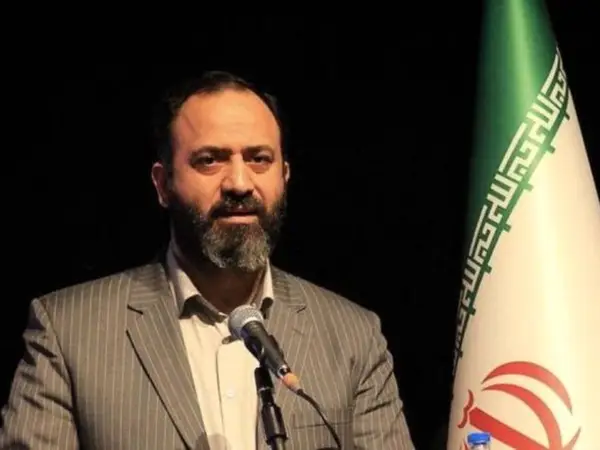Iran’s parliament speaker has criticized the leaking of a video showing an official engaging in sex with a young man, stating that it goes against Sharia law.
"I had previously warned against such methods that go against the law and Sharia during a meeting of the Supreme National Security Council," Mohammad-Bagher Ghalibaf said in response to the scandal, following similarly critical remarks made by hardliner lawmakers on the parliament floor.
This is a typical response by regime officials in Iran who usually advocate ‘killing the messenger’ when faced with evidence of corruption or forbidden activities by insiders.
Meanwhile, what Sharia in Iran clearly forbids is homosexuality among men, which it says is punishable by death.
The video that has gone viral on social media since Wednesday allegedly shows Reza Seqati (Seghati), a married man and the director general of the Islamic Culture and Guidance ministry in the northern Gilan Province who has close ties with the hardliner Paydari Front, engaging in sex with a young man, apparently at a ministry guesthouse.
A few days after the publication of the video, the Islamic culture and guidance department announced that it had suspended Seqati and referred his case to the judiciary for further investigation.
Ghalibaf added that such matters could only be made public after the alleged crime is proven and a judge’s order is acquired.
The presidential administration, the judiciary and senior clerics have so far remained silent about the revelation.
Hardliner lawmakers, Mojtaba Zolnouri and Kazem Delkhosh, had complained that the official should not be judged before investigations by judicial and law enforcement officials are completed and he is found guilty.
The situation is completely different when it comes to dissidents or protesters. Not only they are often arrested without a warrant by plainclothes agents and taken to unknown locations, but immediate reprisals against their family members follow, and they spend month in prison without being indicted.
Zolnour who is deputy speaker has also said those who published the video had committed a much bigger crime than the person they made revelations about and demanded their punishment.
But another conservative member of parliament, Morteza Mahmoudvand blasted the silence and apparent inaction of parliament and top officials during a session Tuesday. He urged President Raisi to intervene "in the name of God," and called for the minister of Islamic guidance to resign.
The hardliners' silence or attempts to downplay the significance of the official's sex video have angered many Iranians. They argue that ordinary people are harshly punished for what the authorities consider 'immoral' actions, but when it involves regime loyalists, leniency seems to be the prevailing approach.
The reformist Mardomsalari newspaper highlighted on Saturday that the mere removal of Seqati from his position and the silence of hardliners regarding his alleged wrongdoing, where they would typically raise a storm if someone with different political affiliations were involved, is proof of hardliners' double standards in ethical and moral matters.
“Would they be so compassionate if a person from the rival political camp had done the same thing or would call him an agent of the CIA and Mossad in Iran who had taken money from the West to morally corrupt the [Iranian] youth,” Mardomsalari asked.
The paper also drew attention to reports of Seqati’s close affiliation to former nuclear negotiator Saeed Jalili, one of the leaders of the ultra-conservative Paydari group, his brother Vahid Jalili, and their political circle.
Photos of Saeed Jalili and Seqati have been widely circulating on social media. Some news websites and social media users have speculated that the publication of the video may have something to do with internal conflicts in the hardliner camp and was meant to bring disgrace to Jalili and his immediate associates.
Most social media users have expressed anger about Seqati’s hypocrisy as he was well known for his efforts to encourage hijab as an Islamic “value” but engaging in homosexuality which is a very serious offense in Islam and punishable by death according to Iran's Islamic Penal Code.
